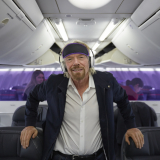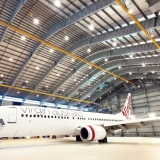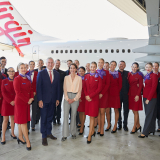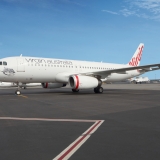Fleet growth positions Virgin Australia for higher capacity, lower emissions
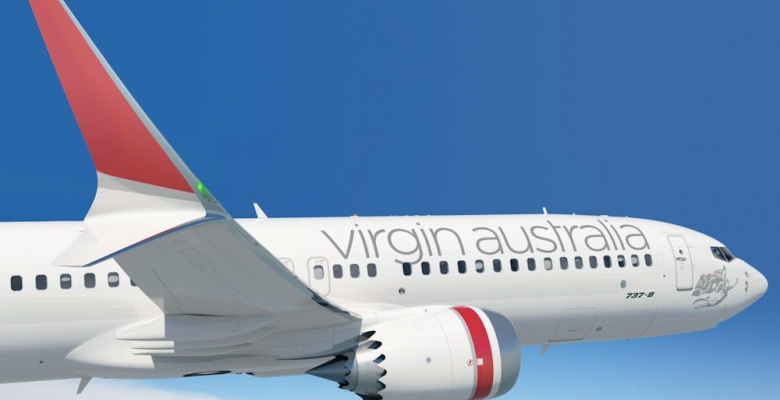
Virgin Australia Group has today taken an important step in its journey towards Net Zero, unveiling the first phase of its fleet growth program which will see four new Boeing 737 MAX 8 aircraft introduced to its network and F100 aircraft retired from service and replaced by Boeing 737-700s.
The four new MAX 8 aircraft, scheduled to start entering service from February 2023, will reduce emissions by 15% per journey in comparison to current 737 NG aircraft. Each 737-700 will fly more passengers for a similar amount of fuel than each F100, resulting in 30% less emissions per seat per trip.
Virgin Australia CEO Jayne Hrdlicka said the fleet program is part of a broader growth strategy which will see the Boeing 737 fleet, currently consisting of 737-700 and 737-800 aircraft, increase to 88 with the inclusion of 4 MAX 8 aircraft in response to increasing demand.
“We are on track to return to 100% of pre-COVID domestic capacity by June this year and expect to well exceed those levels by year’s end, and our resources sector and contract flying in WA is in high demand. This investment in our fleet reflects the increased demand we are experiencing in all parts of Virgin Australia,” Ms Hrdlicka said.
“With growth comes a larger carbon footprint, so it’s vital that we take the right steps now to ensure that as we do more flying, we are also working to reduce our emissions.
“We have a younger average fleet age than other airlines operating in the Australian market and we are in a good position to phase out our older F100 aircraft for more fuel-efficient options.
“This fleet program is about making sure we capitalise upon that advantage as we work toward achieving our 33% domestic market share, strengthen our resources sector and contract flying, and continue on our journey to Net Zero.”
Since it’s re-launch in November 2020 the Virgin Australia Group has announced it will grow its 737 fleet by over 50%, from 58 aircraft to 88. The Group currently operates 10 x F100 aircraft across its operations in Western Australia, with the F100 fleet to be gradually transitioned out and replaced by 737-700s from first quarter 2023.
As part of a future phase of its fleet program Virgin Australia Group has an additional 25 Boeing 737 MAX 10 aircraft on order, which will transport more passengers for a similar amount of fuel to current 737 NG aircraft, resulting in 17% less emissions per seat per trip.
Ms Hrdlicka said in addition to the sustainability benefits, the fleet program also presented greater opportunity for team members across the business.
“This program is as much about investing in our people as it is investing in our operations,” Ms Hrdlicka said.
“We are committed to building this business and positioning it for success into the long term. Continuing to modernise our fleet and develop the capability of our teams across Australia to support newer aircraft is an essential part of that success.
“Equipping our WA operation with more modern and efficient 737 aircraft positions us to grow and to better compete in the resources sector and contract flying market across Australia. It also enables Virgin Australia to improve fleet utilisation across the Group.
“Existing F100 flight and cabin crew, VARA engineering and support staff and corporate and operations functions will be progressively trained to operate and maintain a 737 NG fleet, both as F100 aircraft are retired and as the airline continues to grow its WA resources sector and contract flying business.”
In addition to its 737 fleet, Virgin Australia Group will also continue to operate Airbus A320 aircraft as part of its resources sector and contract flying operations.
Virgin Australia announced its commitment to Net Zero Emissions by 2050 in November last year. In addition to its fleet program the airline is also actively building out its wider sustainability strategy, including investigating operational efficiencies, the use of alternative fuels, and waste management and carbon offsetting programs.

